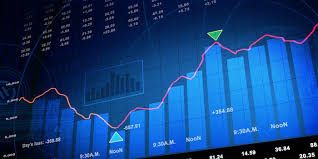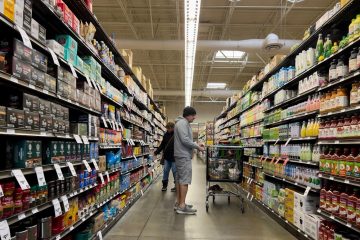Japan’s economy contracts in Q3 as natural disasters, trade woes bite

TOKYO (Reuters) – Japan’s economy contracted more than expected in the third quarter, hit by natural disasters and a decline in exports, a worrying sign that trade protectionism is starting to take its toll on overseas demand.
The contraction in the world’s third-largest economy adds to growing signs of weakness globally, with China and Europe losing momentum. Germany is expected to report later in the day that its economy also shrank last quarter.
Japan’s 1.2 percent annualised contraction in July-September was more than a median estimate for a 1.0 percent decline and followed a robust 3.0 percent expansion in the previous quarter.
The government stuck to its view the economy continues to recover moderately, blaming the contraction on typhoons and an earthquake that halted factories and stifled consumption.
But some analysts said such one-off factors alone could not explain the downturn, pointing to worrying declines in exports amid slowing Chinese demand and the fallout from escalating global trade frictions.
“The decline in exports cannot be attributed entirely to the natural disasters,” said Hiroaki Muto, economist at Tokai Tokyo Research Center.
“The message is China’s economy is weakening, which means Japan’s exports will be slow to recover and growth will stall around the first half of next year.”
Japan’s gross domestic product (GDP) in July-September fell 0.3 percent from the previous quarter, Cabinet Office data showed on Wednesday, matching a median estimate and following a revised 0.8 percent increase in April-June.
External demand – or exports minus imports – shaved 0.1 percentage point off GDP, matching the median estimate. But a breakdown of the data showed exports fell 1.8 percent quarter-on-quarter, the fastest decline in more than three years.
While many analysts expect Japan’s economy to rebound in the current quarter, the weakness in exports suggest protectionism could weigh on growth and pressure policymakers to turn to fiscal stimulus.
“Japan’s economy may slow down from January onwards as the U.S.-China trade war intensifies,” said Masaki Kuwahara, senior economist at Nomura Securities.
“U.S. tariffs on its imports of Chinese goods take effect in January, curbing Chinese shipments, which will in turn damage Japanese exports and capital expenditure,” he said.
Private consumption, which accounts for about 60 percent of GDP, fell 0.1 percent July-September as consumers spent less on travel, lodging, and dining out.
Capital expenditure fell 0.2 percent, the first decline in two years, due to lower spending on construction equipment. The median estimate was for capital expenditure to remain unchanged. Capex rose 3.1 percent in April-June.
Economy Minister Toshimitsu Motegi said Japan’s economy was likely to recover moderately driven by rising household income and a tightening job market. But he added the government will be take note of growing overseas risks.
“IT-related exports to Asia have been slowing from around spring, so we need to be mindful of the impact trade frictions and China’s growth outlook could be having on Japan’s economy,” he told reporters after the data was issued.
In September a large earthquake triggered a blackout in the northern island of Hokkaido, which followed severe typhoons that damaged airports and transport infrastructure in western Japan.
Businesses were quick to resume normal operations. A trade war between the United States and China, the world’s two largest economies, is the bigger concern as it threatens Japan’s exports of car parts, electronics, and heavy machinery, economists say.
The GDP data does not provide a detailed breakdown of exports by destination. But finance ministry data published last month showed exports to China, Japan’s largest trading partner, fell in September for the first time in seven months.
Another survey has shown China’s manufacturing sector barely grew last month after stalling in September and export orders continued to fall, a worry for Japan as China is a major buyer of its manufacturing equipment and components.






